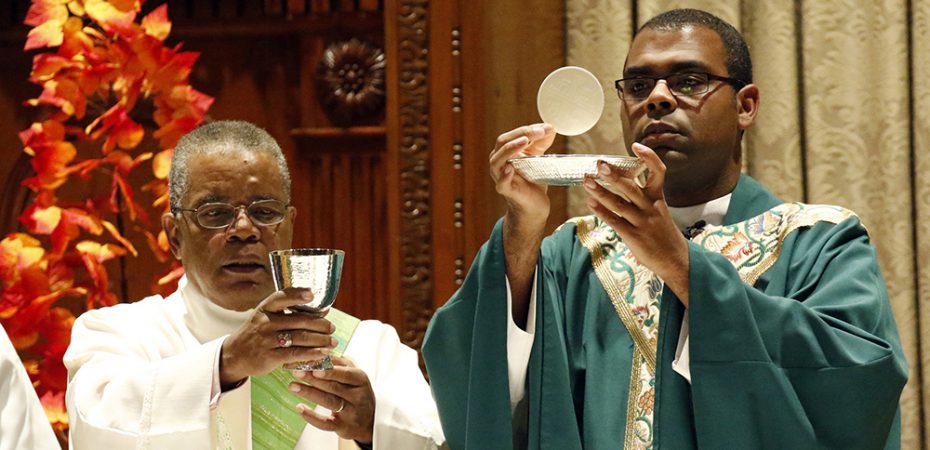Ministry as a Form of Worship
Deacon Dominic Cerrato Comments Off on Ministry as a Form of Worship
Many years ago, while I was undergoing formation, I recall learning the various liturgical rites associated with the diaconate. We were taught the rituals, saying the “black” and doing the “red.” It was all very functional, and, in the end, we knew how to baptize, officiate at marriages, perform vigil services and assist at Mass, or so we thought.
While functionality has its place, these rites aren’t simply a matter of saying the correct words and doing the correct gestures, they’re about ministering with the heart of Christ. This is virtually impossible without making an intentional connection between the interior life and the exterior life, between our relationship with God and our relationship with those we serve. Though implied, this interior dimension of ministry, be it liturgical or pastoral, was never touched upon in formation nor in any of the diocesan workshops I attended over the years.
Since the diaconate began to develop after the Second Vatican Council, greater emphasis has been placed on “being” over “functionality,” on what it means to be a deacon over what he does. To be sure, functionality is essential. We need to know what we need to do in the exercise of our ministry. However, if we want to effectively bear witness to Christ the Servant, by itself, functionality is insufficient. It can come across as cold and barren, void of the empathy so critical to sacred ecclesial service.
In the very exercise of our ministry, in the very function of our office, we’re called to reveal Our Lord such that our service becomes an act that reveals and sanctifies. For this to happen, we must allow Christ to act in and through us. Some suggest this occurs when we step aside, getting out of Christ’s way. While there’s some truth to this, it fails to consider that we aren’t mere instruments in the hand of God, but are active participators, receiving as we give, being sanctified as we sanctify. Recalling the words of St. Teresa of Ávila: “Christ has no body now but yours. No hands, no feet on earth but yours. Yours are the eyes through which he looks compassion on this world. Yours are the feet with which he walks to do good. Yours are the hands through which he blesses all the world. … Christ has no body now on earth but yours.”
If this is true, and it is, then it follows that every exercise of our liturgical ministry can be an encounter with Christ and, because of this, constitutes a potential form of worship. I say “potential” because if we don’t intentionally recognize him the opportunity to worship, the opportunity to receive and be sanctified, will pass us right by.
One of the benefits of such an approach to ministry is that it reduces the possibility of clergy burnout, which can happen to deacons just as much as priests. Burnout occurs when we pour ourselves out in ministry and fail to appreciate that God wants to encounter us in the very process. As we minister, he desires to minister to us. In this way, he refreshes us spiritually, giving us the grace and consolation so very necessary to overcome ministerial fatigue.
What’s true liturgically is also true pastorally. We can easily get caught up in the doing of this ministry or that, failing to see that it is Christ we’re encountering. However, when we become aware of his presence in those we’re called to minister, then that encounter too can become an act of worship. Such an approach can transform the way we exercise ministry and, in the very process, reveal in new and powerful ways Christ the Servant, not only to those we serve, but to us as well.
Of course, all of this presupposes an interior life that seeks intimate communion with Our Lord. In this respect, the source of the deacon’s diaconate is Christ the Servant and access to him arises out of a spirituality attuned to his saving presence. That presence can be realized liturgically, pastorally or, for that matter, in each and every aspect of our lives.
DEACON DOMINIC CERRATO, Ph.D., is editor of The Deacon and director of diaconal formation for the Diocese of Joliet, Illinois. He is the founder of Diaconal Ministries, where he gives national presentations and retreats to deacons and diaconal candidates. Follow him on Facebook to continue the conversation.





